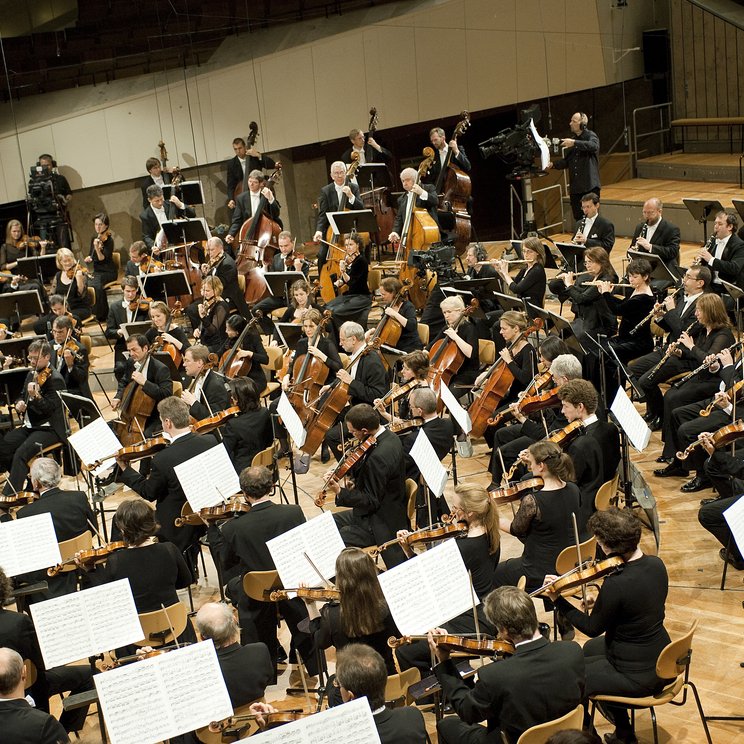
Staatskapelle Berlin
Vita
Founded as a court orchestra by Brandenburg’s Elector Joachim II and first documented in 1570, the Staatskapelle Berlin is one of the oldest orchestras in the world. When Frederick the Great opened the Royal Court Opera in 1742, its sphere of activity expanded: since that time, the orchestra has been closely associated with the opera house on Unter den Linden. Famous figures have led the concert series established since 1842: the list of conductors who have worked with the orchestra ranges from Spontini, Mendelssohn, and Meyerbeer to Weingartner, Strauss, Furtwängler, Karajan, Konwitschny, and Suitner. Richard Wagner also collaborated with the Hofkapelle, and his works have been one of the pillars of its repertoire ever since. Daniel Barenboim stood at the helm from 1991 to 2023; he will be succeeded by Christian Thielemann in the 2024-25 season. In addition to its Berlin concerts, the Staatskapelle regularly travels to European music centers, as well as to Israel, Japan, China, and North and South America. As part of its annual festival, cycles of works are also presented, including of the great Wagner operas and symphonies by Bruckner and Mahler. In the 2023-24 season, the orchestra focused on the works of Antonín Dvořák, undertaking a tour to North America at the end of 2023, during which all the Brahms symphonies were performed under Giedrė Šlekytė, Jakub Hrůša, and Yannick Nézet-Séguin in Toronto, Chicago, New York, and Philadelphia. The Staatskapelle Berlin has been voted Orchestra of the Year five times by Opernwelt magazine, and in 2003 it received the Furtwängler Prize and a Grammy Award.
Lucerne Festival (IMF) debut in September 1994 in two concerts including works by Beethoven, Wagner, and Verdi under Daniel Barenboim.
April 2024